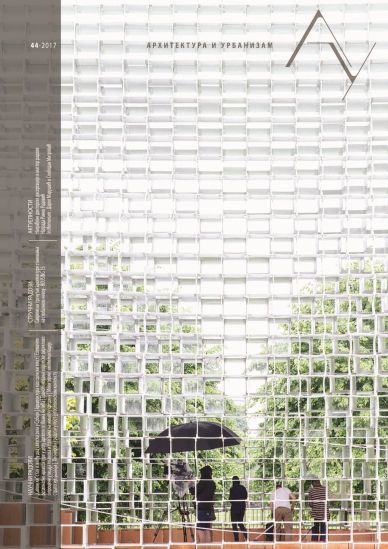Implementation monitoring of city development strategy - the case study of Pančevo
Abstract
This paper is the result of the research project carried out as part of master’s study programme Integral Urbanism at Faculty of Architecture, University of Belgrade. The main focus of master's thesis was ''Instruments for Governing Integral Urban Development''. In year 2016, polygon used to create a master projects was the territory of the City of Pančevo, a development framework was: ''City Development Strategy of Pančevo for the Period 2014-2020''. Considering issues and potential improvement opportunities of the city, after research and analysis, we have chosen the research theme ''Implementation Monitoring of City Development Strategy – The Case Study of Pančevo''.
The paper outlines the broader framework of urban development management to understand the implementation of new management tools of urban development in local context of the City of Pančevo. The focus is on instruments that improve process of the monitoring of implementation of local development strategies - human resources, financing, institutionalization and participation. The results of this master project relate to the proposals for improving the monitoring of the implementation strategy, including the manner and structure of reporting, establishing a team to implement the strategy as a permanent body, linking funding strategy with the program budget of the city and improving public participation and transparency in decision-making in the process of implementing the strategy. Results are derived from the research presented in this paper, and listed for better overview and operationalization issues in a local context. The focus of this work is on understanding the capacity of institutionalization of the changes in the domain of urban development in the local context in Serbia.References
Akcioni plan za implementaciju strategije razvoja grada Pančeva za 2016. Godinu (2016).
Barca, F. (2009) An Agenda for a Reformed Cohesion Policy: A Place–based approach to meeting European Union challenges and expectations. Independent report, European Commission.
Brenner, N. (2004) New State Spaces Urban Governance and the Rescaling of Statehood. Oxford University Press.
Vanclay. F. (2011) Endogenous rural development from a sociological perspective, In: Stimson, R., Stouch, R. R., Nijkamp, P. (eds.). New Horizons in Regional Science, Edward Elgar, Cheltenham, UK., Northampton, MA, USA, 59–69.
Vasiljević, D. (2007) Novi zakonski okvir za lokalnu samoupravu u Srbiji. In: Modeli organizacije lokalne samouprave. Beograd: Palgo, 183-186.
Vujošević, M., Zeković, S., Maričić, T. (2012) Novi evropski regionalizam i regionalno upravljanje u Srbiji. Beograd: Institut za arhitekturu i urbanizam Srbije.
German Association of Cities (2013) Integrated Urban Development Planning and Urban Development Management – Strategies and instruments for sustainable urban development. German Association of Cities.
Godišnji izveštaj o implementaciji strategije razvoja grada Pančeva za 2015. godinu (2016).
European Commission (2015) Guidance for Member States on Integrated Sustainable Urban Development (Article 7 ERDF Regulation).
European Commission (2014) COHESION POLICY 2014-2020, Community-Led Local Development.
Jessop, B. (1998) The Narrative of Enterprise and the Enterprise of Narrative: Place Marketing and the Entrepreneurial City, in: T. Hall and P. Hubbard (eds) (1998) The Entrepreneurial City: Geographies of Politics, Regime and Representation. Chichester: John Wilez & Sons, 77-100.
Keil, R. (2003). Globalization Makes States: Perspectives on Local Governance in the Age of the World City, in: Brenner, N., Jessop, B., Jones, M. and MacLeod, M. (eds), State /Space: A reader. Blackwell Publishers, 278-295.
Lipeitz, A. (2003) The National and the Regional: Their Autonomy Vis a Vis the Capitalist World Crisis, In: Brenner, N., Jessop, B., Jones, M. and MacLeod, M. (eds) 2003. State /Space: A reader. Blackwell Publishers, 239-255.
Mayer, M. (1994. Post-Fordist city politics, in: A. AMIN (Ed.) Post-Fordism: A Reader. Cambridge, MA: Blackwell, 316-337.
Mijačić, D. (2012) Decenija lokalnog ekonomskog razvoja u Srbiji: šta su preporuke za budućnost, Policy Brief. Belgrade: Inter.
Petrović, M. (2010) O izazovima lokalnog i regionalnog razvoja, Sociologija, 52(2), 211-215.
Petrović, M. (2014) Društvo i gradovi: između loklanog i globalnog. Beograd: ISI FF.
Petrović, M. (2015) Potencijali i prepreke lokalnog razvoja – percepcija građana dva grada u Srbiji. Titus, 6-7, 369-386.
Petrović, M., Toković, M. (2016) Neoendogeni razvoj gradova i ekološki paradoks: studija slučaja šest gradova u Srbiji, Sociologija, posebno izdanje, 181-209.
Regulation (CPR) (EU) no 1303/2013 of the European Parliament and of the Council. Official Journal of the European Union.
Savage, M., Bagnall, G., Longhurst, B. (2005) Globalization and Belonging. Sage Publications.
Stalna konferencija gradova i opština (2015) Analiza (procena uticaja) strateškog planiranja i programskog budžetiranja na nivou lokalnih samouprava.
Stalna konferencija gradova i opština SKGO (2014) Uputstvo za izradu programskog budžeta.
Storper, M. (1997) The Regional World: Territorial Development in a Global Economy. New York: Guilford Press.
Storper, M. ( 2011) Justice, efficiency amd economic geography: should places help one another to develop?. European Urban and Regional Studies, 18, 3-21.
Strategija razvoja grada Pančeva 2014-2020 (2014).
Horlings, L. (2012) Place branding by building coalitions. Place Branding and Public Diplomacy, 8, 295-309.
Czischke, D., Pascariu, S. (2015a) The integrated approach to sustainable urban development in 2014-2020: implementing article 7. European Regional Development Fond.
Czischke, D., Pascariu, S. (2015b) New Concepts and Tools for Sustainable Urban Development in 2014 – 2020. European Regional Development Fond.
Čolić, R. (2015) Integrated Urban Development Strategy as an Instrument for Supporting Urban Governance, Serbian Architectural Journal SAJ, 7, 317-342.

